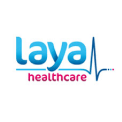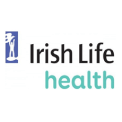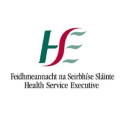A safe and effective daily pill that can greatly reduce your risk of HIV infection.
PrEP has been shown in many studies to be safe and if taken correctly has been found to be highly effective in the prevention of HIV infection.PrEP is for people who do not have HIV, are at high risk of infection and want to take a pill to reduce their risk of HIV infection.
PrEP is now offered as a private and confidential service at Charter Medical. To book your PrEP consultation please call us on (01) 657 9002
Who is it for?
You should consider taking PrEP if you
- Do not always use condoms during sex.
- Have a partner who has HIV and a detectable or unknown viral load.
- Are trying to conceive with a partner who has HIV.
- Have a partner who has an unknown HIV status or who refuses to get an HIV test.
- Have used PEP (post-exposure prophylaxis) in the past years.
- Have sex for money, drugs or a place to stay.
- Are using recreational drugs for sex, also known as chemsex Or any activity that may expose you to HIV infection.
- Had a recent sexually transmitted infection (STI), especially a rectal infection or syphilis.
PrEP does not protect against other STIs. For example, syphilis, chlamydia, gonorrhoea and hepatitis C. And some of these sexually transmitted infections (STI’s) can cause serious health problems if left untreated. It’s important, get tested.
To make an appointment, please contact: (01) 657 9002
How much does it cost?
- Initial Visit €200
- 3 Monthly review visits €160
- Hep A vaccination €55
- Hep B vaccination €240
- 1st Vaccinaton – HPV course (Garadsil 9 of 3 vaccinations) €275
- 2nd Vaccinaton – HPV course (Garadsil 9 of 3 vaccinations) €240
- 3rd Vaccinaton – HPV course (Garadsil 9 of 3 vaccinations) €240
- Syphilis positive tests will incur consultant specialist fees. On Inquiry
Opening Hours
8:30 am to 7:00 pm (Monday and Thursday- Last registration at 6:30 pm)
8:30 am to 5:00 pm (Tuesday, Wednesday and Friday – Last registration at 4:30 pm)
To make an appointment, please contact: (01) 657 9002
FAQs about PrEP
What does PrEP mean?
PrEP means Pre-Exposure Prophylaxis, and it’s the use of anti-HIV medication that keeps HIV negative people from becoming infected.
Is it safe and effective?
PrEP has been shown in many studies to be safe and highly effective at preventing HIV. When taken correctly PrEP has been found to be about 99% effective.
How will you gaurantee that it is confidential?
The law guarantees confidentiality. Your clinical records cannot be shown to anyone without your written permission.
Does it protect from all STI’s?
PrEP is the newest HIV prevention tool available and is best used in combination with other HIV prevention measures.PrEP does not protect against other STIs. For example, syphilis, chlamydia, gonorrhoea and hepatitis C.
While taking PrEP, should I have an STI screen?
Regular STI testing at least every 3 months is recommended for people taking PrEP.
How can I reduce the risk of other STIs?
PrEP users can combine condoms and PrEP to reduce the risk of contracting other STIs.
Understanding and preventing HIV
Correct information is the key to understanding and preventing HIV. Getting the facts about HIV can lead to better health and better living with HIV. Below are some facts about HIV
HIV is not the same as AIDS
HIV is the virus that leads to AIDS. You can have HIV for years without having AIDS. Being infected with HIV does not mean you have developed AIDS. Also, people with HIV who start treatment early in their infection, stay on treatment, and have an undetectable viral load can stay healthy and prevent the disease from progressing to AIDS.
HIV cannot be cured
There is no cure for HIV at this time. But with today’s medicine, women can reduce their viral load (amount of HIV in the blood) to the point that it is undetectable. This means that your viral load is fewer than 40 to 75 copies in a sample of your blood. An undetectable viral load does not mean that you no longer have HIV. It is still possible to pass HIV to others, although the risk is much lower. Having an undetectable viral load also helps prevent the progression to AIDS or getting other infections. Research is being done that may lead to new treatments and new ways of preventing HIV infection. In the meantime, women with HIV are living full lives, including working, having children, and participating fully in their communities.
H.I.V. (Human Immunodeficiency Virus)
H.I.V. is a virus that can cause Acquired Immune Deficiency Syndrome (A.I.D.S.). It can be transmitted by sexual intercourse and stays in the body for life, attacking your immune system so that you are unable to fight infections. It is diagnosed by a blood test and requires life-long treatment and monitoring.
There is no vaccine to prevent HIV.
Right now we do not have a vaccine to prevent HIV. Vaccines are the best way to prevent diseases you can get from other people, like the measles, mumps, or polio. Researchers have been working for more than 20 years to develop a safe and effective vaccine against HIV. HIV is a complicated virus that changes over time. This makes vaccine research difficult, and it takes a long time to do the research. Researchers are closer to developing a vaccine to prevent HIV and a vaccine to treat HIV.
People with HIV should start HIV medicine right away.
Even if you’re feeling great and have no symptoms, HIV is hurting your immune system. To protect your immune system, most experts recommend starting HIV medicines (called antiretroviral therapy or ART) as soon as you are diagnosed with HIV. Because these drugs reduce your “viral load,” or the amount of HIV in your blood, they also reduce your chances of passing HIV to others.
You cannot know if your partner has HIV unless he or she is tested.
It can take years for you to see symptoms of HIV.Using a condom correctly every time you have vaginal, oral, or anal sex can reduce the risk of passing HIV by 80%.Use a condom every time you have sex for two reasons. First, your partner might be infected but not know it. Second, you cannot control your partner’s risky behavior. You can know only your HIV status and control only your own risk-taking.
You (or your partner) need to wear a condom during sex
If you and your partner have HIV, you still need to practice safer sex. Use a condom every time you have vaginal, oral, or anal sex. Condoms can protect you from other sexually transmitted infections (STIs). Also, since there are different strains (types) of HIV, you can be infected a second time with a different type than what you already have. Some forms of HIV are also more virulent, meaning they progress to AIDS faster. You could become infected with a drug-resistant strain of HIV. This can make it very hard for treatment to work.
Women can give HIV to men.
It is much harder for men to get HIV from women, but it does happen. HIV can enter a man’s body at the opening of the tip of the penis and through cuts or sores on the shaft that may not be visible. Plus, if a partner has an untreated sexually transmitted infection (STI) like genital herpes, syphilis, gonorrhea, or chlamydia, the risk is even higher. These infections can bring more CD4 cells to the area of infection or cause breaks in the skin. These STIs also raise your risk for passing HIV to others.
Women can get HIV.
Any woman of all ages, races and ethnicities, and sexual orientations can get HIV. Any woman who has unprotected sex with someone who is HIV-positive or whose HIV status is unknown is at risk for HIV. HIV is not just a disease of gay men. In fact, most people living with HIV are straight (heterosexual), and more than half of people living with HIV are women.Most women who are HIV-positive got HIV from unprotected sex with an HIV-positive male.
Book your Appointment
Charter Medical is now offering PrEP service and late night STI Screening (Monday and Thursday until 6.30pm
Prevent HIV. Say”Yes” to PrEP. You can enjoy your sex life and stay healthy. Get tested.
To Book your PrEP Consultation discreetly at Charter Medical Sexual Health clinic, call (01) 657 9002 and book an appointment today.







